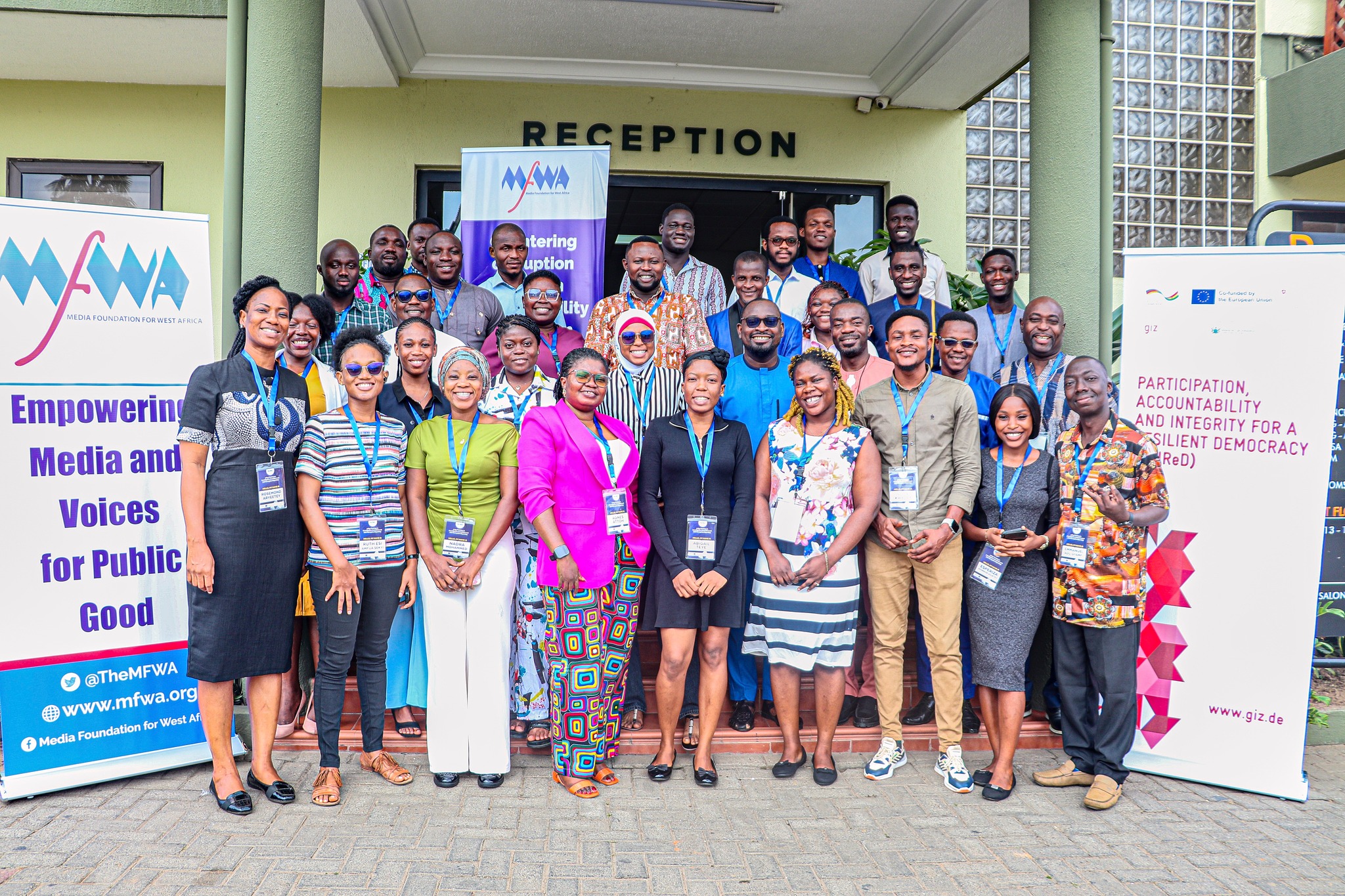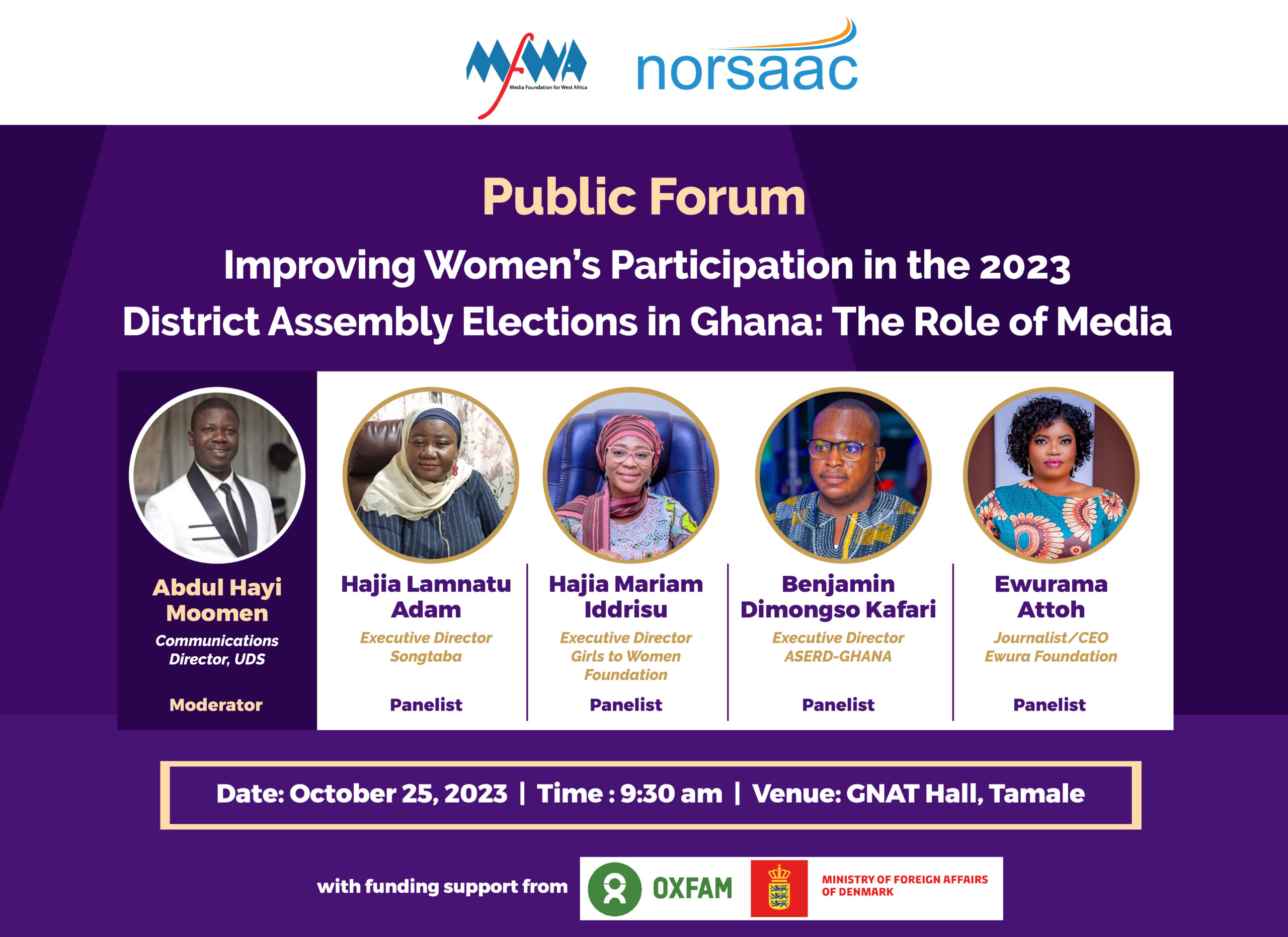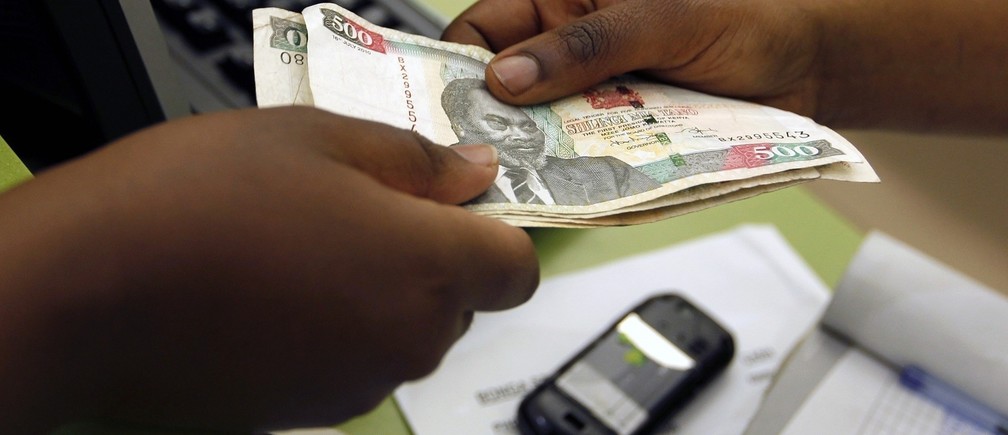The Media Foundation for West Africa (MFWA) has trained 30 journalists from the Ashanti, Greater Accra, and five northern regions of Ghana in investigative journalism and anti-corruption reporting, as part of efforts to strengthen accountability journalism in the country.
The three-day training, held from September 26 to 29, 2025 at the Sunlodge Hotel in Accra, was facilitated by Michael Boadi of Transparency International Ghana and William Nyarko, Executive Director of the Africa Centre for International Law and Accountability (ACILA), who also doubles as the Editor for Corruption Watch.
The training on Investigative Journalism and Anti-Corruption Reporting is one of three intensive capacity-building workshops under the MFWA project titled, “Countering corruption through accountability journalism and improved freedom of expression environment in Ghana”, which seeks to strengthen the capacity of the media, especially investigative journalists, to produce investigative reports around issues of corruption and promote accountability that addresses socio-economic disparities. The project also seeks to improve the freedom of expression environment in Ghana.
This initiative is part of the Participation, Accountability, Integrity for a Resilient Democracy (PAIReD) programme, commissioned by the German Federal Ministry for Economic Cooperation and Development (BMZ), co-financed by the EU and the Swiss State Secretariat for Economic Affairs (SECO), and implemented by GIZ in cooperation with the Ministry of Finance.
The next two training workshops will focus on the use of Ghana’s Right to Information (RTI) Law, and on Data Journalism and Fact-Checking.
Senior Programme Manager for Media for Democracy and Good Governance at the MFWA, Rosemond Aryeetey, said the initiative was designed to sharpen journalists’ skills in uncovering corruption and promoting transparency.
“This training is part of our broader efforts to build the capacity of journalists, particularly in investigative reporting, to expose corruption and contribute to a more accountable and transparent governance system in Ghana,” she said.
Investigative Journalism is Tough but Impactful
Facilitator Mr. William Nyarko said investigative journalism is not for the fainthearted, stressing that only a small fraction of journalists is willing to take up the task because of the difficulties associated with the practice.
“Investigative journalism basically isn’t an easy space to operate as a journalist. That is the reason why only two out of 100 journalists will choose to operate as investigative journalists,” he said.
He explained that while investigative work is demanding, it is also the most impactful branch of journalism. He therefore urged the participants to embrace the courage and the persistence needed to follow evidence wherever it leads.
Mr. Nyarko further cautioned the journalists to be guided by the law in all their work.
“Investigative reporting should not be reckless. Journalists must be circumspect when pursuing any investigative piece to ensure that it falls within the remit of the law and that the tools used for gathering information are lawful and professional,” he advised.
GIZ’s support for accountability journalism in Ghana
Representing GIZ at the opening session of the training, Kweku Obeng, the Component Manager for the PAIReD programme highlighted the vital role of the media in the fight against corruption, describing journalists as “democracy’s unsung heroes.”
“Corruption robs nations of their future. It steals opportunities from children, drains resources meant for the sick, and dashes the hopes of our youth. Against this injustice, investigative journalists stand as democracy’s unsung heroes — exposing uncomfortable truths at great personal risk,” Mr. Obeng noted.
He added that safeguarding investigative journalism and freedom of expression was essential to Ghana’s democracy.
“Our expectation is simple: that the skills and tools you acquire here will be translated into impactful stories that inspire change, expose wrongdoing, and hold power to account,” he told the participants.
Additionally, Mr. Obeng assured the journalists of GIZ’s continued commitment to strengthening the role of the media as a watchdog institution. He concluded with a call to action, urging participants to use the knowledge and skills acquired to make meaningful contributions to national development.
“We look forward to reading your investigations and witnessing their ripple effects across Ghana. We chose MFWA as our partner for a reason. With a proven track record of training over 300 journalists, establishing Fact-Check Ghana as a trusted platform, and consistently driving accountability through fearless journalism, MFWA exemplifies the integrity and professionalism needed in this fight,” Mr. Obeng said.
Conclusion
The training ended with participants pledging to apply their skills in producing impactful stories that expose corruption and hold duty-bearers accountable to the people.
For the MFWA and its funders, the workshop marked not just the conclusion of a three-day exercise, but the continuation of a journey to nurture a new generation of investigative journalists dedicated to safeguarding democracy and building a safer environment for freedom of expression to thrive.






